Top 20 Questions to Ask Your Orthopedic Surgeon Prior to Hip or Knee Surgery
–
On my medical blog, I have discussed many topics surrounding complex hip and knee issues, from understanding joint pain to choosing the right orthopedic surgeon.
As head of the of the Leone Center for Orthopedic Care at Holy Cross Hospital in Fort Lauderdale, my practice focuses exclusively on solving complex hip and knee problems, including hip and knee replacement surgery and knee arthroscopy. Over the past 10 years, I have performed more than 5,000 joint replacement surgeries.
If I were having this type of surgery, here are the top 20 questions I personally would ask my orthopedic surgeon:
- How much improvement can I expect from my surgery?
- What is your experience in performing this surgery, and how many have you done before?
- Are you Board Certified?
- On average, how many of these surgeries are done annually at the hospital with which you are affiliated?
- Will you provide me with either written materials or digital media about this surgery and/or other pre-operative counseling?
- What type of implant will be used on me, why did you choose it and what is the prosthesis track record?
- What are the risks involved with this type of surgery and how common are they?
- What type of anesthesia will be used and what are the risks?
- Which, if any, medications will I need to stop taking prior to surgery?
- Can I avoid a blood transfusion or if needed during surgery, what are the safeguards?
- How much post-operative pain can I expect and what medication will I be given for pain?
- How long will I be in the hospital and will I need to go to a rehabilitative center after the surgery or will I be able to go home?
- What types of complications might occur after surgery?
- What are the signs of these complications?
- How soon after surgery will I start physical therapy?
- Will I need to have continued outpatient therapy or at-home therapy?
- Will I need to arrange for any type of at-home assistance and if so, for how long and will my medical insurance cover this?
- What limits will there be on activities, such as bathing, driving, diet and other routine physical activity and if so for how long?
- How long will I be out of work and when can I drive?
- For how long and how often will I need to return for follow-up visits?
We thank you for your readership. If you would like a personal consultation, please contact our office at 954-489-4575 or by email at LeoneCenter@Holy-cross.com.

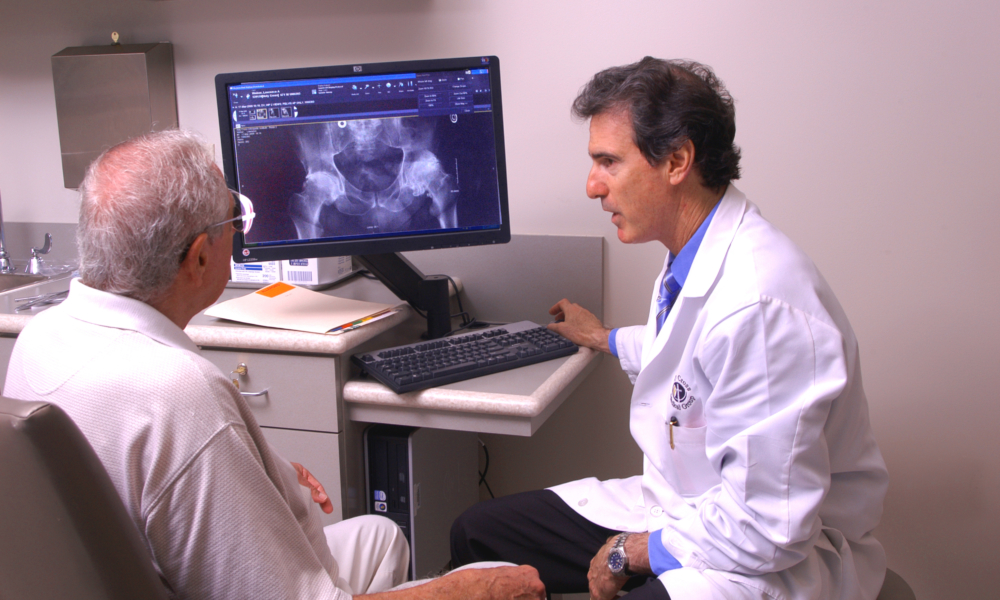

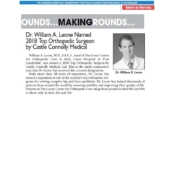
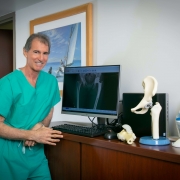
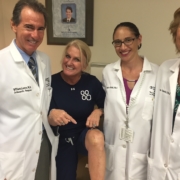
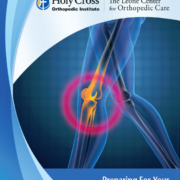
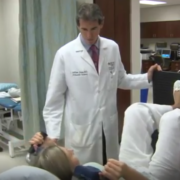




Thank you for a very comprehensive list of questions I plan on asking my physician.
When does the risk of joint popping out go away? This is what scares me!
Hello Connie,
I understand your fear. Fortunately, the risk of a total hip dislocating is very small, especially after the surrounding soft tissues heal. Our natural hips do not dislocate unless they experience a huge force from trauma because the surrounding soft tissues including the labrum, hip joint capsule and overlying muscles provide stability and augment the boney stability of the femoral head within the acetabulum. When a total hip is performed, the doctor must dissect through these natural supportive layers of soft tissues (fasica, muscle and capsule) to implant the prosthesis. The labrum typically is removed and the capsule repaired after the artificial hip is implanted. Historically, the location of the hip capsule opening did affect the risk of dislocation (anterior vs. posterior). Today, there is essentially no difference with different approaches because modern day plastics allow us to use much-larger prosthetic femoral heads (which are inherently more stable than smaller ones) and current surgical techniques allow for much securer closing of the surrounding soft tissues. With time, the capsule as well as the surrounding tissues heal and form a complete layer or wall of scar, which we refer to as a pseudocapsule. Once the pseudocalpsule has healed and matured, the risk of dislocation is very small. My advice to you is not to let your fear of dislocation stop you from having a total hip replacement, if deemed appropriate. It is a surgery that has changed the life of countless people in a wonderfully positive way.
I wish you the best,
Dr. William Leone
I appreciate your tip on asking your orthopedic surgeon if they have experience performed this surgery. I would imagine that you would want to find a surgeon that has a lot of experience doing your type of procedure. I need some shoulder surgery soon so when I find a surgeon I’ll be sure to find one that has experience in this type of procedure.
I would like to know what type of tests are done to confirm a tarsal tunnel diagnosis. Also what conservative methods are taken before someone should consider surgery? Thanks so much.
My sister is going to have some surgery done by an orthopedic surgeon and she is a little nervous. She keeps wondering what risk is there, and what to expect. I tell her to ask the surgeon because they would be the best ones to know.
Dear Luke,
I completely agree with the advice you gave your sister. I too would encourage your sister to discuss her upcoming surgery further with her surgeon, including what she should expect after surgery, potential problems that can occur and any other specific concerns that she has. It has been my experience that patients who go into surgery with more knowledge and insight are more confident, get well faster and overall have a better experience. She might like to refer to my blog post outlining questions to ask prior to surgery.
I wish your sister well.
Sincerely,
Dr. William Leone
We thank you for your readership. If you would like a personal consultation, please contact our office at 954-489-4584 or by email at LeoneCenter@Holy-cross.com. General comments will be answered in as timely a manner as possible.
How many days offer orthopaedic LRS surgery goes to physiotherapy
Hello there,
I have a hip labrium tear on left side im 33 yrs old when i walk i feel snapping on my hip will the surgery help stop the snapping and burning sensation on the side of my tight. Thank you
Dear Rafael,
Hip arthroscopy often is an effective treatment when someone presents with symptoms such as you describe. Many other variables also must be taken into consideration, including the condition of you articular cartilage and if an underlying congenital condition exists, such as dysplasia. My advice is to discuss your symptoms with you surgeon, and look for his or her advice and experience.
I wish you a full recovery.
Dr. William Leone
We thank you for your readership. If you would like a personal consultation, please contact our office at 954-489-4584 or by email at LeoneCenter@Holy-cross.com. General comments will be answered in as timely a manner as possible.
These are some very good questions that you should consider! One that really stood out to me was what type of implant will they be using. I would want to know what is going to be replacing my joint before the surgery takes place.
It seems like my dad is always injuring his knee. The other day he fell off of his bike and hit a curb, braking his knee. I went with him to the Orthopaedic surgeon and my father asked him a lot of these questions. The biggest one that stands out in my mind is the type of anesthesia. I think the reason this one was brought up right away was because my dad hates feeling pain. I don’t blame him on that one!